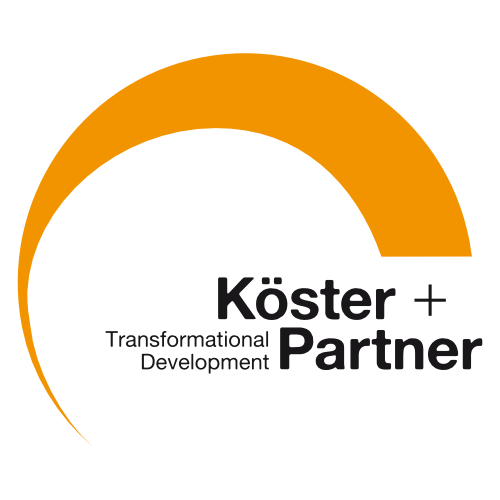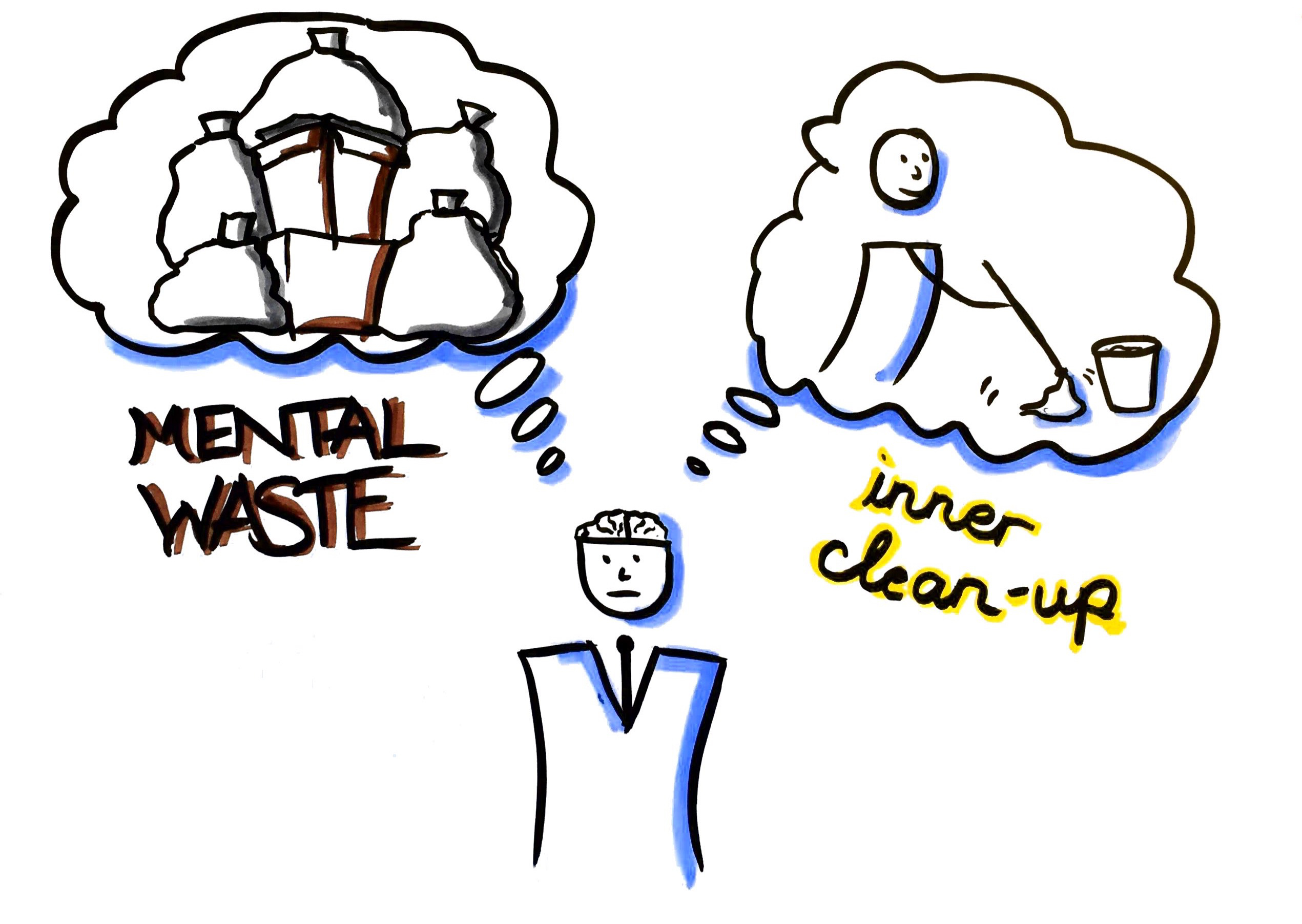Mental cleanup?!
The last decades have been dominated by the concept of efficiency: Save time, save money. Endless change campaigns were initiated to increase efficiency – mainly in the area of production and processes. All organizations have to be lean – promoted in the concepts of lean production and lean management. With this hype the Japanese approach of ‘muda’ (waste) went global and waste is eliminated wherever detected.
Interestingly, a wide area of potential efficiency increases has not been addressed yet: The change of mental habits. Given the shift towards a knowledge-based industry with a high percentage of people adding value with their well-trained brains, this is a promising field.
While we are sitting at our work places, we are ‘producing thoughts’. This is the basis of many jobs in so-called white-collar functions. The challenge with thoughts is: They are evasive. We usually are not aware of them. There are estimates saying that we produce more than 40,000 thoughts per day without being able to state what exactly we are thinking. Are these all relevant and ‘necessary’ thoughts related to the tasks at hand? Are they to the point? Or are they just distracting us from doing what we want to do? Think about what you have been thinking during the last hour. Probably about many issues not really related to your tasks, including some worries, some concerns…
I would like to invite you to shift perspectives now: Following the traditional paradigm, efficiency typically is seen as a way to save scarce resources, to minimize input in order to be able to maximize profits. This view is constraint-based
and usually increases pressure in the organizations we work for. It’s about doing more in less time. This is exhausting and we tend to feel pressure.
But efficiency can be seen differently: Potential-based. It is a concept to gain more freedom by being able to track your thoughts and manage them actively. From this view, efficiency campaigns are an impulse for self-experimentation and self-development enabling us to drive our thought processes and modify thought patterns.
This kind of efficiency leads towards self-empowerment as we emancipate ourselves from thoughts we do not want to think at that very moment for a variety of reasons. This kind of efficiency campaign can be seen as a collective inner clean-up to create free space. Reducing “mental waste” (seishinteki muda) creates ‘free space’ and strengthens creativity. We gain time and mental freedom that we can invest otherwise, for instance in new ideas. Free ‘brain capacity’ helps us to come up with fresh approaches that are especially needed in times of uncertainty and complexity.
Stay tuned to my next post to get to know how to reduce mental waste in practice.



